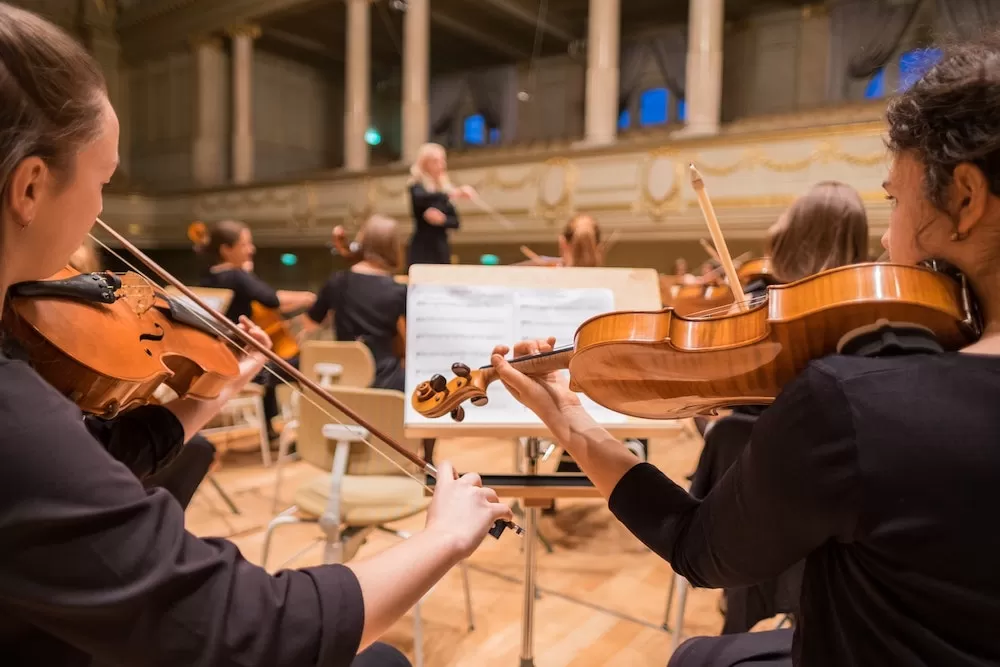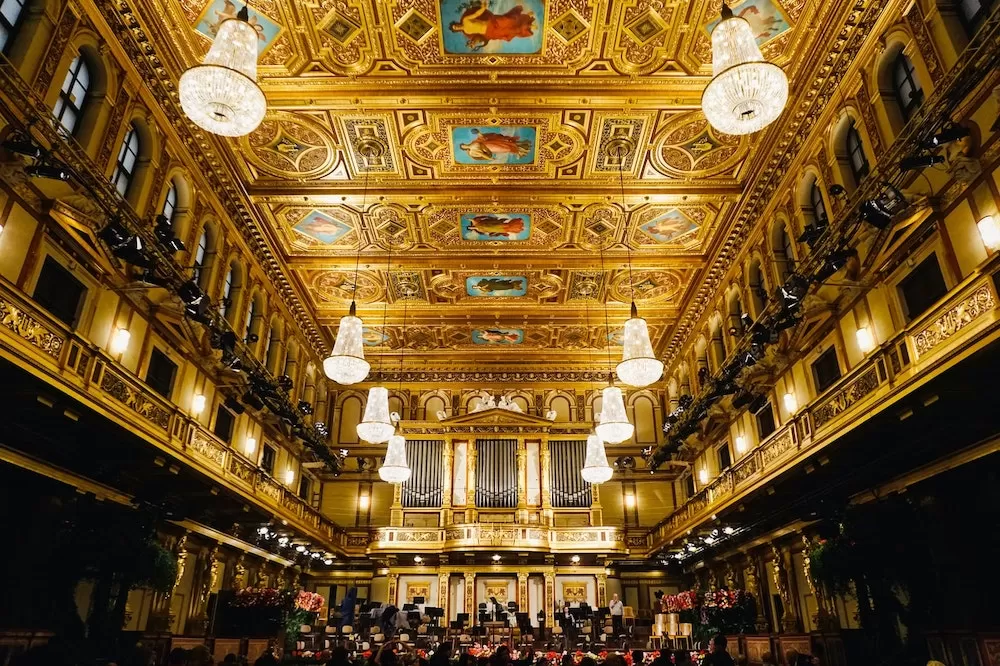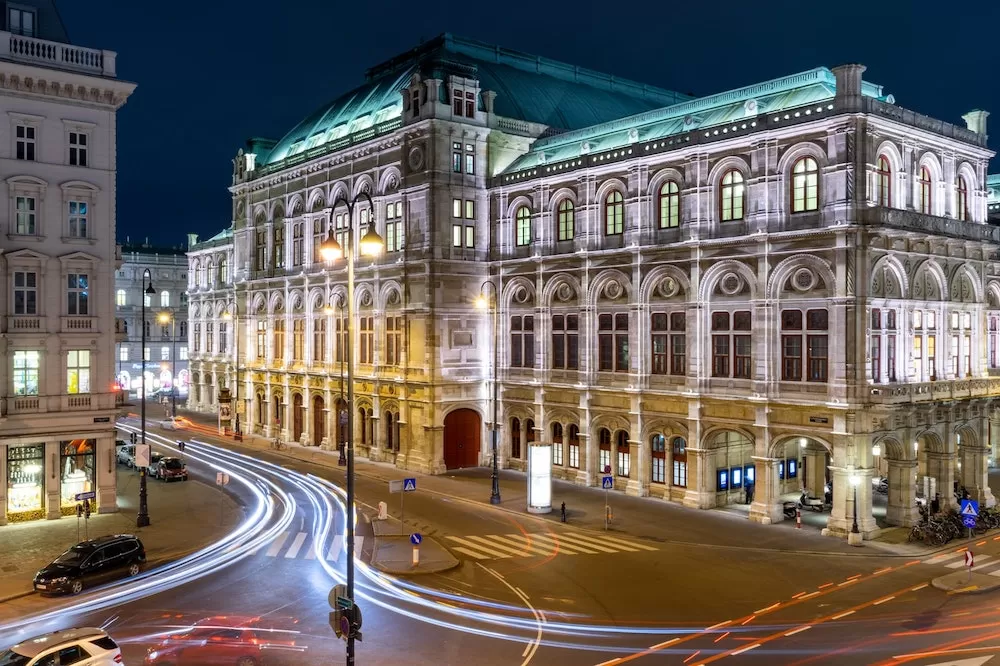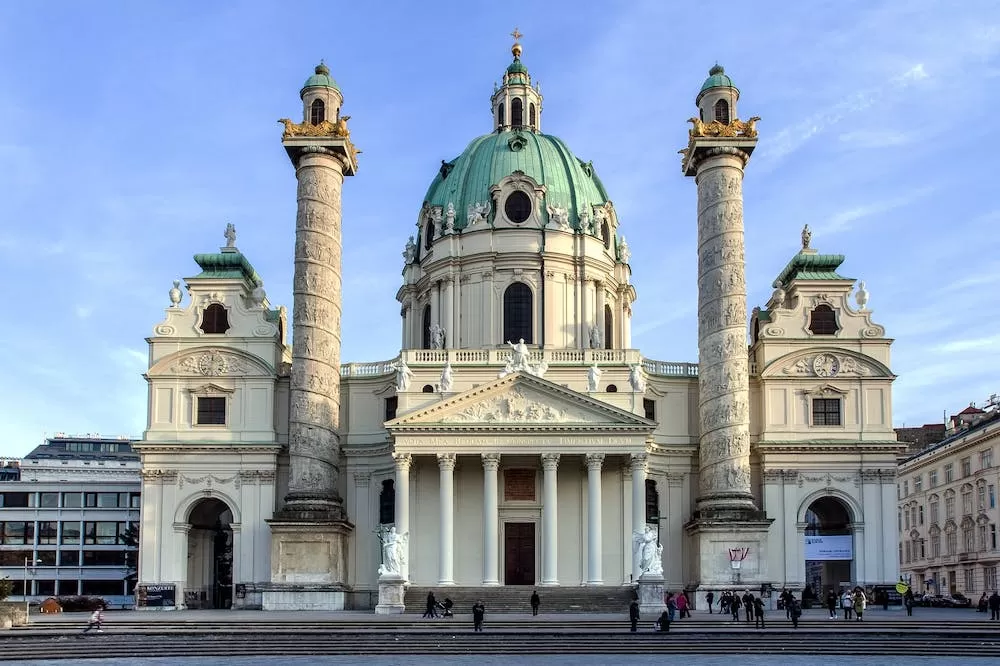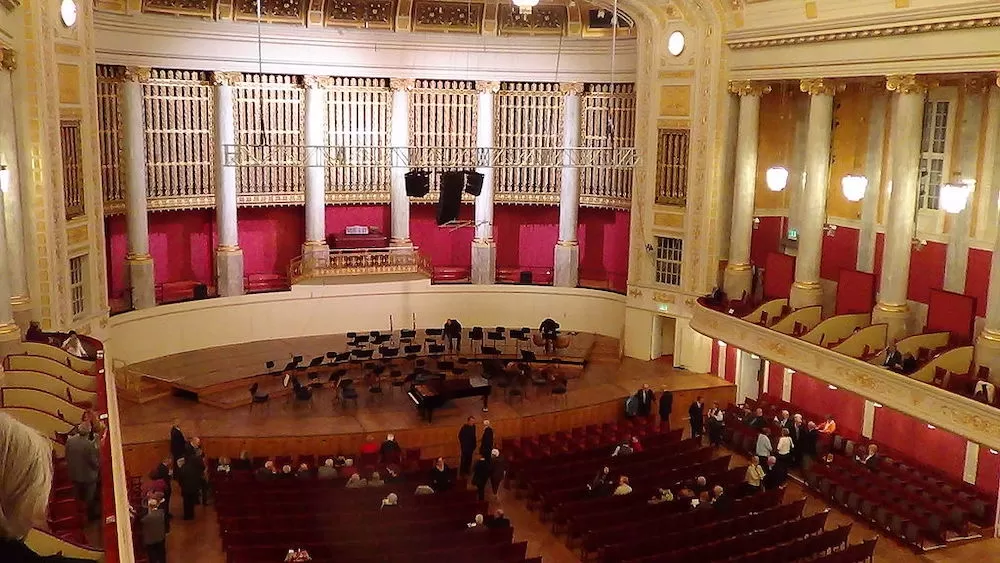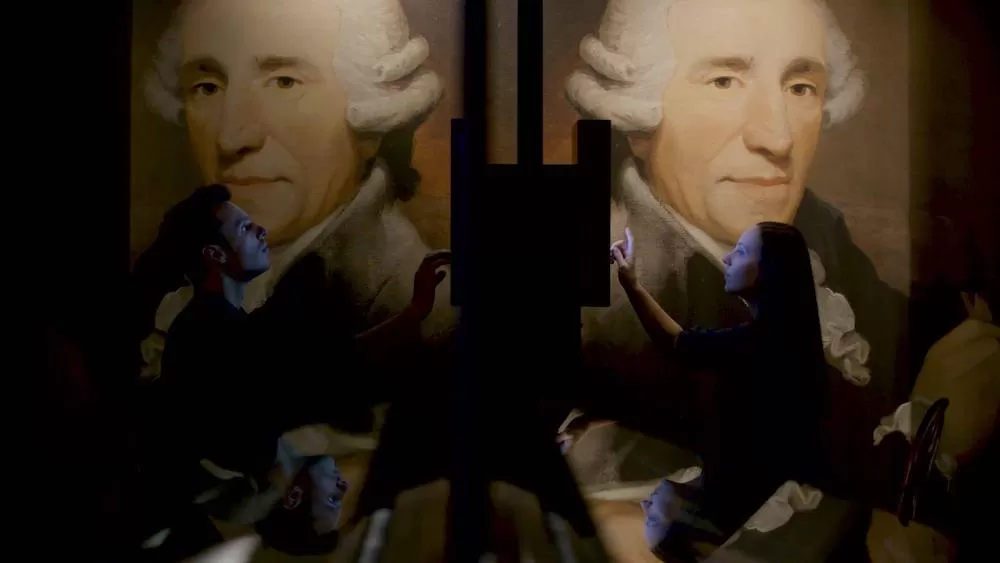Wolfgang Amadeus Mozart, Ludwig van Beethoven, and Joseph Haydn—what do these people have in common? Of course, the automatic answer would be is that they're historic composers, right? After all, these are some of the most legendary names in music. Any classical music lover would know who they are! But apart from that, another thing that these three have in common is that they all lived in Vienna at one point in their lives. They spent time and wrote many of their most famous pieces here, making it the capital of classical music. And if you're a fan of the genre, you should visit these places in the city!
Wiener Musikverein
Home to the Vienna Philharmonic Orchestra, Wiener Musikverein is the epicenter of Vienna's classical music scene. Having opened back in 1870, it has hosted countless concerts throughout history. Today, apart from the Vienna Philharmonic Orchestra, many famous composers, orchestras, and other musicians have also performed here. Its decadent facade is among the most famous in the city, housing gilded halls that are just as stunning and grandiose as ever. Its most famous hall, Großer Saal (Golden Hall), which has a seating capacity of 2,000, is where the pinnacle platform for many classical musicians strive to one day perform on.
Source: Wikimedia Commons
Wiener Staatsoper
While Wiener Musikverein is for orchestras, Wiener Staatsoper is for singers and performers. Known around the world as the Vienna State Opera, this 1,709-seat opera house is one of the grandest of its kind. It even rivals the iconic Opéra Garnier in Paris in terms of prestige and history. Located in the famous Vienna Ring Road in the historic Innere Stadt
district of Vienna, it was once the toast of Viennese High Society. Many of the most legendary opera singers and classical music composers have performed here, not the least of which were Diana Damrau, Renée Fleming, Dmitri Hvorostovsky, and more.
Source: Wikimedia Commons
Karlskirche
Perhaps the most beautiful and grandest display of Baroque architecture in Vienna, the famous church Karlskirche is a shrine where classical music lovers can also make a pilgrimage. And it's all because of one man: Wolfgang Amadeus Mozart. Every December 5th, the day when the legendary composer died back in 1791, 'Mozart’s Requiem,' his iconic final piece, is performed here. It's become an annual tradition that fans of Mozart and of the centuries-old genre should experience at least once. Not only does this yearly performance pay tribute to the tragic artist, but it also commemorates the fact that he once spent time in this church when he lived here.
Source: Wikimedia Commons
Wiener Konzerthaus
Wiener Konzerthaus is another concert hall worth visiting in Vienna. Home to the Vienna Symphony, this place is devoted to legendary composers such as Beethoven, Strauss, and the like. In fact, Richard Strauss even wrote his famous 'Festliches Präludium op 61' piece to commemorate the hall's opening back in 1913. That alone often sends shivers down the spines of any classical music fan who's lucky enough to have walked through its halls. And if you want to listen to the iconic classical pieces here, make sure to visit around April or May to attend the
Vienna Spring Festival.
Source: Wikimedia Commons/ Fss.fer
Haus der Musik
Finally, there's the Haus der Musik, one of the premier museums in Vienna. Located on Seilerstätte in the Innere Stadt, it's a stone's throw away from the many palaces and concert halls, not to mention shopping districts,
luxury homes, and the like, that make up the Austrian capital. It's here where you can learn all about classical music and the evolution of the art form throughout the years. It also includes the actual music sheets, instruments, and more than many of the most famous composers in history used. And if you want, you can compose your own waltz here and let a simulation of the Vienna Philharmonic Orchestra perform it for you! Sounds fun, right?
Source: Haus der Musik Facebook Page
They don't call Vienna the capital of classical music for nothing! The Austrian capital has a lot of great places devoted to music, from historic concert halls to museums that chronicle the city's influence in the art form.
